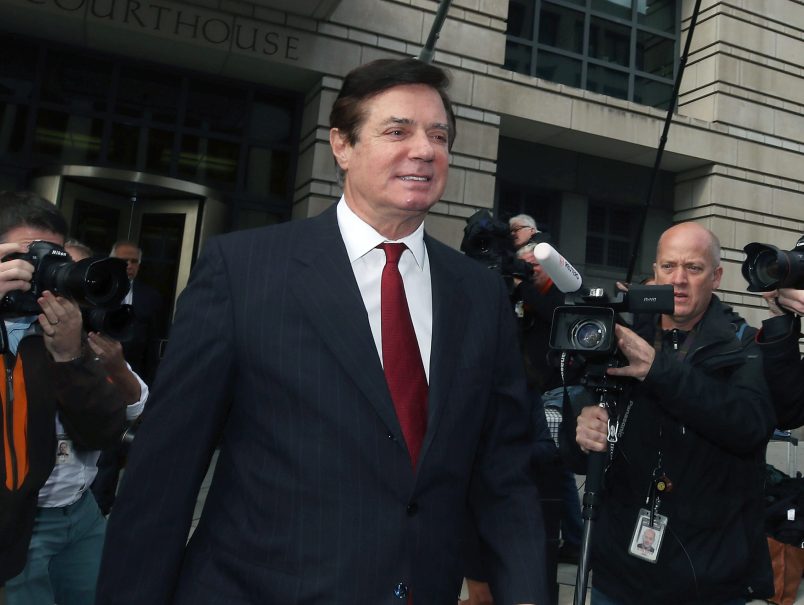New documents from the Mueller investigation tie Trump campaign manager Paul Manafort more closely to the beginnings of President Trump’s Ukraine pressure campaign.
The information comes from 356 pages of FBI interview notes from the Mueller investigation that were released under a Freedom of Information Act lawsuit filed by Buzzfeed and CNN.
Over the course of two interviews on Sept. 11 and 12, 2018, Manafort ran prosecutors with the special counsel’soffice through his interactions with Konstantin Kilimnik, an associate of his from Kyiv who the FBI has described as having ties to Russian intelligence.
At the time, Manafort was entering into a plea agreement that would see him provide information to the government while admitting guilt to charges brought against him in Washington, D.C., cancelling a then-upcoming trial.
According to the notes from the interview, Manafort told the Mueller team about a meeting he held with Kilimnik in Madrid in February 2017.
At the meeting, the document says, Kilimnik updated Manafort “on the work of the National Anti-Corruption Bureau, information from a ledger found with Manafort’s name written in it” as well as activities of the country’s then-President Petro Poroshenko.

These items came to be at the center of the pressure campaign launched by President Trump and his personal attorney Rudy Giuliani.
Giuliani has said that he began to “look into” allegations of wrongdoing surrounding the Democratic Party and Ukraine because of the Manafort case in 2017. Much of that — both for Giuliani and the wider landscape of Trumpworld — focused on an allegation that the “ledger” which forced Manafort to resign as campaign chairman in August 2016 was fabricated, and part of a campaign by the Ukrainian government to hurt Trump.
The ledger was being investigated by Ukraine’s National Anti-Corruption Bureau, an institution set up to be an independent graft prosecutor by the U.S. Embassy in Kyiv. NABU’s involvement in Manafort’s downfall has become a pillar of theories that the Obama administration conspired with Ukraine to hurt the Trump campaign.
Key to Trump and his allies’ sense of grievance is that the New York Times quoted NABU officials in its August 2016 story breaking the news that Manafort’s name appeared next to $12.7 million in payments on the ledger. The NABU officials told the newspaper that Manafort’s name appeared on the ledger, fueling suspicion that the Ukrainian government was trying to tip the race towards Hillary Clinton.
The Mueller 302 reports summarizing interviews suggest that Manafort himself was interested in the theory, and was relying on his own contact in Kyiv to learn more.
Giuliani would later investigate the allegations himself, and reportedly was in contact with Manafort’s attorneys about the theory as part of a bid to defend his own client: President Trump.
It’s not clear from the rest of the 302 what the pair discussed during their hour and a half meeting at Manafort’s hotel in Madrid. The document suggests that Kilimnik assuaged any worry Manafort may have had about being prosecuted in Ukraine.
By spring of the following year, Ukraine general prosecutor Yuriy Lutsenko had reportedly frozen the investigations into Manafort.
The special counsel’s office later accused Manafort of lying about other portions of the February 2017 Madrid meeting, saying that the longtime GOP consultant lied about whether he and Kilimnik discussed a “peace plan” that could bring an end to the conflict in Ukraine.
[ READ MORE: How Trump’s Ukraine Pressure Campaign Grew Out Of Manafort’s Downfall ]






